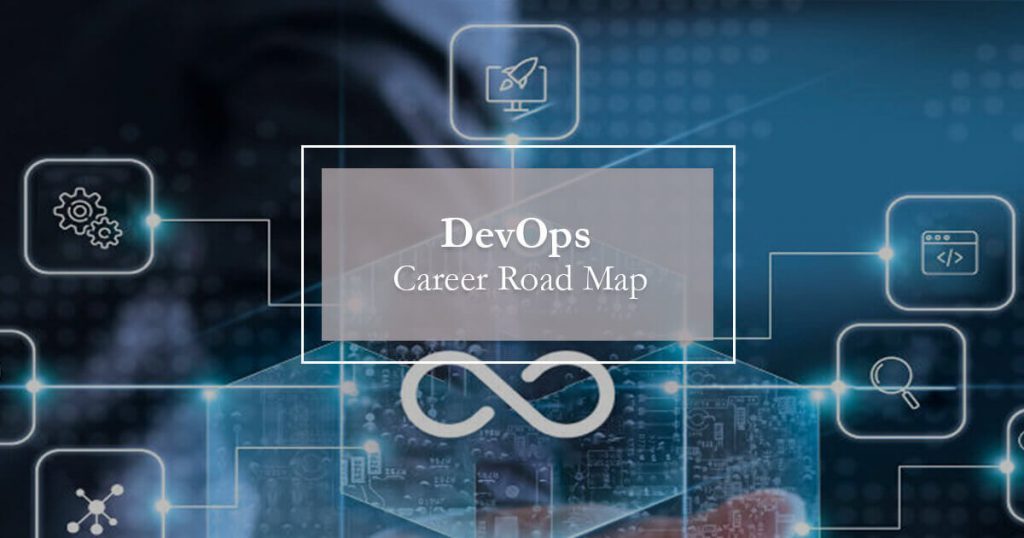Career Road Map to Becoming a DevOps Professional
 DevOps combines development and operations knowledge and skill. Its purpose is to facilitate collaboration between IT operations and software development. However, there’s more to it than just streamlining work.
DevOps combines development and operations knowledge and skill. Its purpose is to facilitate collaboration between IT operations and software development. However, there’s more to it than just streamlining work.
It is considered one of the ways to make careers great again. Further, it has the power to make them fascinating and intriguing, especially since most of the skills it teaches are interpersonal rather than technical.
Why Choose a Career in DevOps
DevOps helps professionals develop unique knowledge and skills. After all, they learn about the best practices, software tools, culture, and mindset necessary for developing top quality products quicker.
It has proven to be especially beneficial for IT professionals and practitioners with the following backgrounds:
- Coding
- Testing
- Mathematics
- Computer science
- Database administration
- Systems administration
- Operations
If you’re interested in becoming certified in DevOps for the sake of your career, here are some of the benefits of your decision.
- Higher Earning Potential – Having the DevOps knowledge is going to rapidly boost your market worth. DevOps engineers earn an estimated annual salary of USD 110,000 – 192,000.
- Dynamic Career Opportunities – Becoming certified gives you easy access to vast career opportunities globally. As practical skills and DevOps knowledge is highly in-demand, organizations will happily offer you lucrative job opportunities.
- Greater Future Growth – If you want a secure career, DevOps can help. In fact, it ranks 6th on the best employment opportunities on job portals. Therefore, the certification will help you get the best job opportunities out there.
Jobs You Can Pursue in 2020 and Beyond
If you’re wondering about the career opportunities DevOps has to offer, here are two important ones you can’t go wrong with in 2020 and beyond.
DevOps Architect
A DevOps Architect is responsible for analyzing and implementing DevOps practices within their teams. Their role is to architect the overall environment and ensure all efficient methodologies are executed as per industry standards. They also introduce the right tools to automate processes.
DevOps Architects can also set up a continuous build environment that speeds up processes, namely development, testing, and deployment. At times, professionals in this role may act as team mentors to guide developers and operations to resolve issues.
Release Manager
A Release Manager is in charge of planning, scheduling, monitoring, and controlling the development and deployment of software. They ensure development and operations teams are in sync, which is important for frequent but short feedback loops.
As their role is to ensure faster software releases, they need to establish success and acceptance criteria for the current build. They’re also people centric as their goal is to minimize the impact on users.
Security Engineer
As a DevSecOPs, you’ll have a different set of responsibilities that align with DevOps’ continuous security philosophy. For instance, you’ll need to use log and configuration management tools to ensure thorough security.
Automation Engineer
With this role, you’ll be in charge of developing and maintaining the CI/CD process for applications and their builds. The organization will have you automate the configuration management across both the infrastructure and platforms.
You’ll also have to build and administer virtual machines and containers and perform logging and monitoring activities.
Software Tester
Test engineers in a DevOps environment need to align their test design, cases, and automation with the framework used in their organization. Their role is to verify code changes work as intended and don’t cause the software product to break.
Integration Specialist
By collaborating with the infrastructure operations and development teams, integration specialists ensure the integration and continuity of code. Their role is to create a holistic view of the working environment and support the engineering and testing teams. An integration specialist also supports developed automation while working with cloud architects.
How to Succeed as a DevOps Professional
To achieve an excellent position in the DevOps environment, you should be aware of the following.
- Think like a developer – Even if you don’t work as a developer, approach challenges and issues from the perspective of one.
- Have sound knowledge of Cloud Management – Cloud tech has quickly become the necessity of every organization. Gaining cloud management skills will ensure you get a reputable job easily.
- Understand System Engineering – You should have a good grasp of basic system administration tasks and three-tier application architecture.
- Soft skills above all – You can’t just ignore the importance of leading with soft skills. This is important as some jobs are people-centric.
So, make sure to develop your skills accordingly.
How DevOps Certifications Can Fuel Your Career
While some believe DevOps roles don’t require certifications, organizations are more likely to consider certified professionals. This, too, will impact the position offered to you and the salary you take home. Moreover, preparing for your certification will help you –
- Learn about transformational leadership, DevOps culture, and structure and teaming
- A greater understanding of the evolution of DevOps Practices
- Understand Agile project management and Scrum methodology
- Understanding of the history and the need for this methodology
- Learn the 15 essential practices and key concepts of DevOps
- Learn the business value of DevOps
- Learning of the concepts C.A.L.M.S., The Three Ways, continuous delivery, and the scope of the full stack
- Understand the key concepts of cloud technology and virtualization
- Learn about automation for deployment pipeline, and architecting for continuous delivery
How to become a DevOps Certified Professional
After learning about the exciting journey of DevOps professionals, you’re probably interested in learning about becoming certified.
Before getting into the certifications’ details, you first need to determine your current level of expertise. If you’re already working as any of the following, DevOps certification will help you grow in your professional journey.
- Software Development Professionals
- IT Service Management Professionals
- Project & Program Managers
- IT Directors
- Business Analysts
- Testing Professionals
- Data Center Professionals
- Change Managers
- System Architects
- System Engineers
DevOps Fundamentals
The first level certification available in the DevOps Fundamentals from PeopleCert. Having this certificate testifies to your knowledge on implementing processes, tools, and culture. Moreover, it proves your proficiency while collaborating, communicating, integrating, automating, and defining workflows between developers and operations.
DevOps Leadership Certification
The advanced certification, DevOps Leadership, is for practitioners leading software and app development as well as business analysts and project managers. With this certification, you prove your knowledge of the methodology. It also testifies to your ability to use a full-stack approach to ensure business value delivery.
So, Let’s Make You a Certified Professional
Having a DevOps certificate will benefit your career for sure. But preparing for it requires that you choose the right accredited organization for this purpose. Luckily, you’re just a click away from a trusted, accredited certification provider who’ll ensure learning is fun. So, don’t forget to check out our certifications and choose your learning journey with us.




